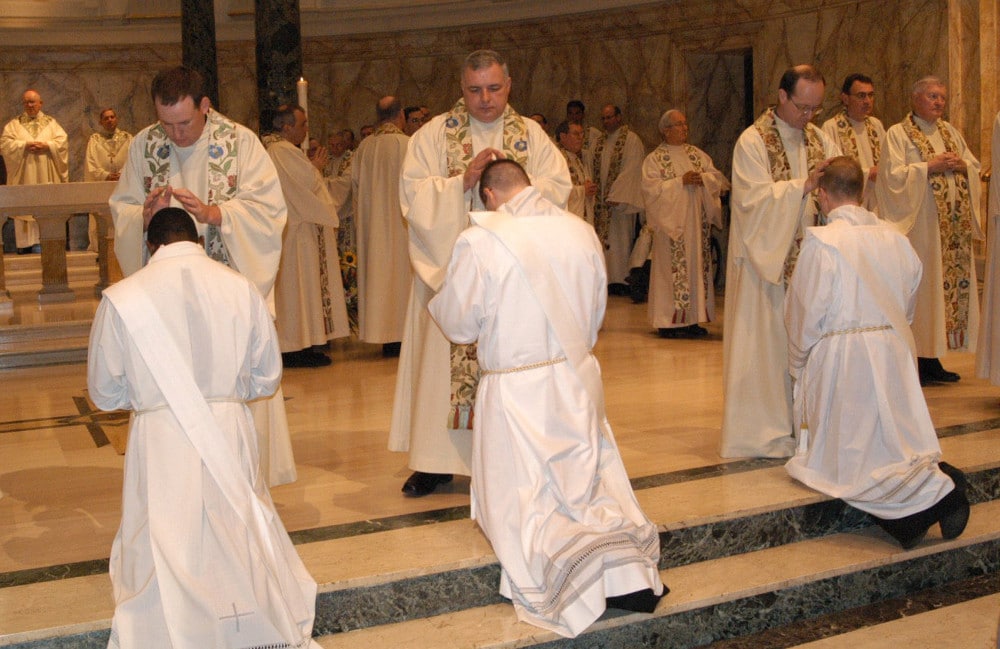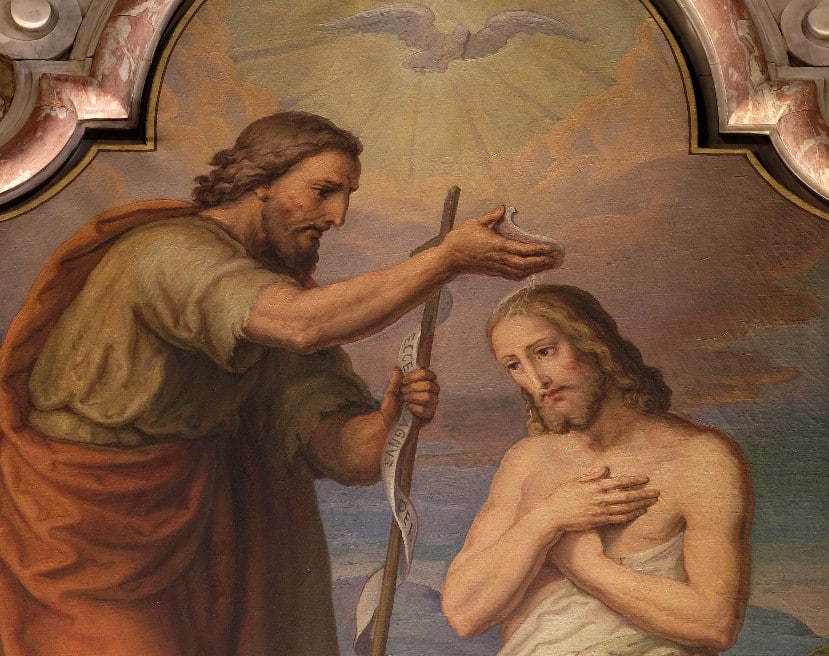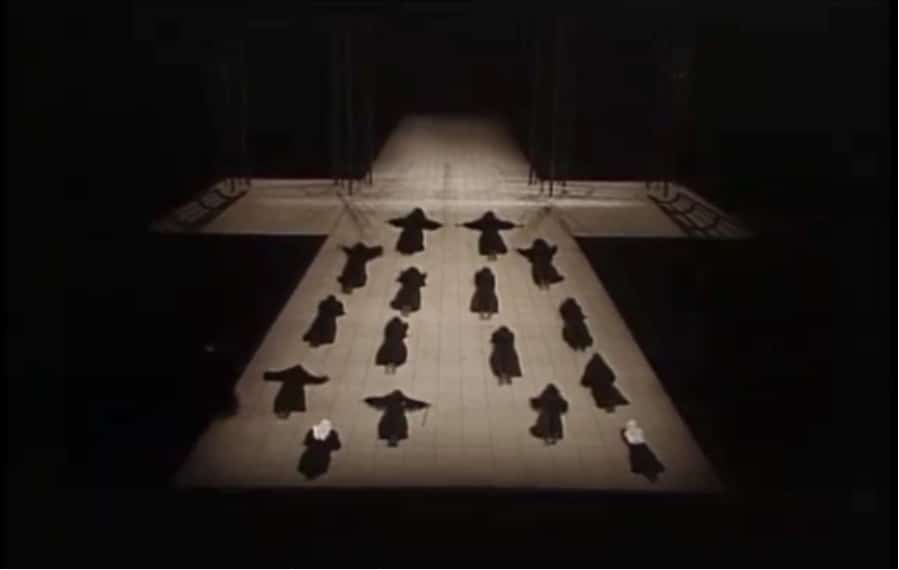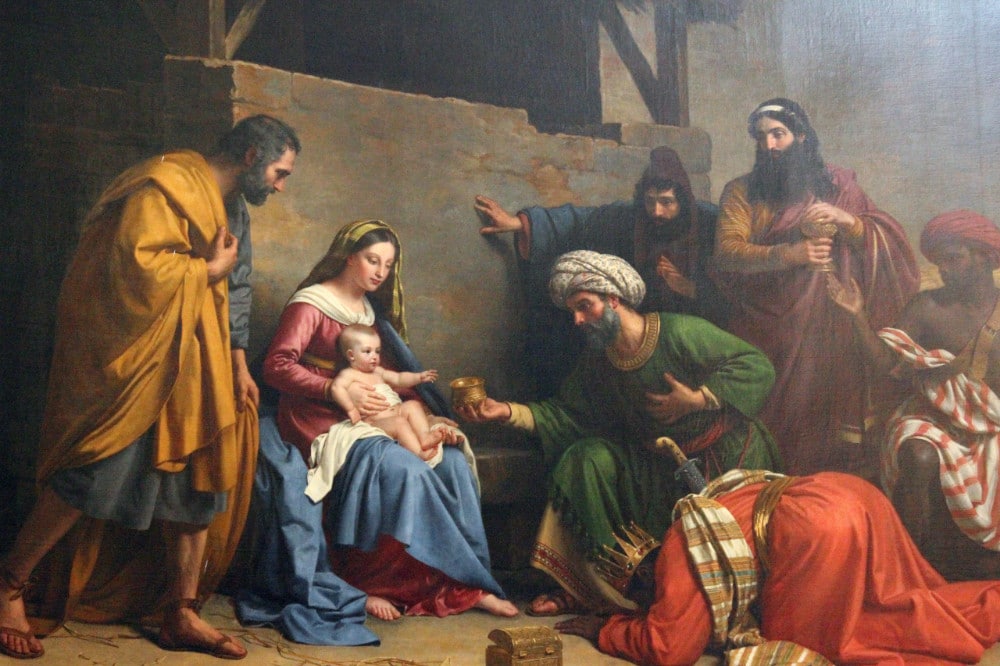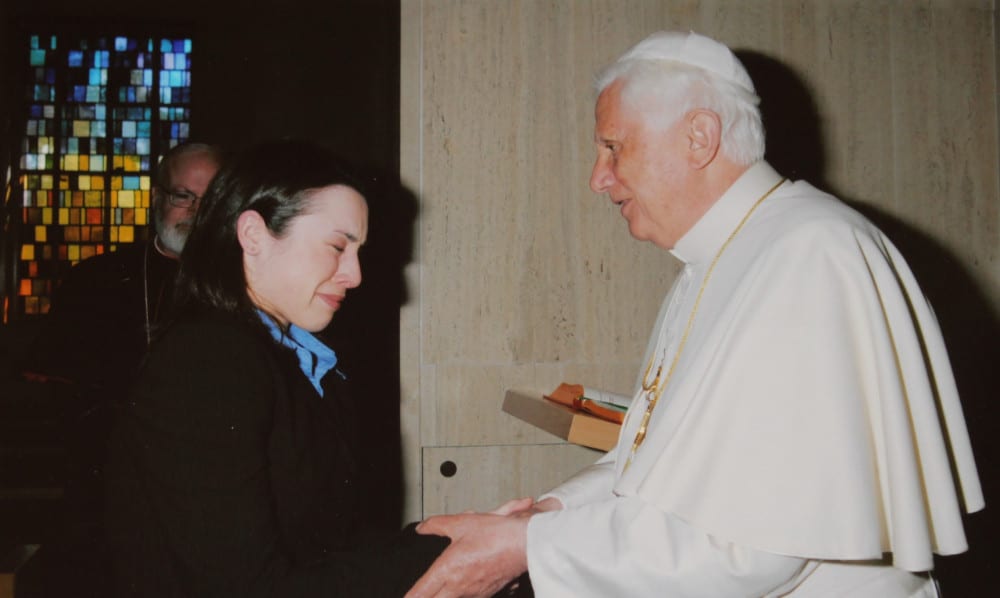 In the Dominican Order, although we friars live celibacy and poverty, we only make one vow: obedience. We profess this solemn vow kneeling before our superiors, with the constitution of our order held in our hands. The formula we recite as we make the vow begins, “I make profession and promise obedience to God, to Blessed Mary, and to Blessed Dominic ….” The superior holds the friar’s hands, gripping the constitution, in his as these words are pronounced.
In the Dominican Order, although we friars live celibacy and poverty, we only make one vow: obedience. We profess this solemn vow kneeling before our superiors, with the constitution of our order held in our hands. The formula we recite as we make the vow begins, “I make profession and promise obedience to God, to Blessed Mary, and to Blessed Dominic ….” The superior holds the friar’s hands, gripping the constitution, in his as these words are pronounced.
The whole scene embodies the very idea of religion. According to the Constitutions of the Order of Preachers, it is “by obedience [that] a person dedicates himself totally to God, and his actions approximate to the goal of profession, which is the perfection of charity. Everything else, too, in the apostolic life is included under obedience” (LCO, 19, §I). In Latin religare, from which our word religion is derived, means to bind. At its root, religious life in any tradition — Franciscan, Jesuit, Benedictine — means to humble oneself, to agree to be shaped, and led, and instructed.
But this is not only true for friars and monks and Jesuits. Obedience is the very core of priestly life. Obedience is so important that during an ordination Mass, the promise of obedience to the bishop and his successors is the final promise a man moments before the sacrament of Holy Orders is conferred. Every priest at his ordination Mass promises fidelity to the Gospel and to be a “fellow worker” alongside the bishops.
It’s an extraordinary act. And one that is confusing to our deeply American intuitions. We rightly treasure our personal freedom. But the simple fact is that a priest cannot. As Archbishop Fulton Sheen puts it, “the priest is not his own.”
Far from being restrictive and prohibitory, as we might initially think it to be, the profession of obedience is liberating. The Dominican constitutions say, “Because obedience ‘plants the roots of self-discipline in our hearts’ it is of the greatest benefit to that freedom of spirit characteristic of the children of God, and disposes us to self-giving charity” (LCO 19, §III). Obedience curbs the wounded heart’s temptation to self-will.
By professing and living obedience, we die to self, following the way of the Gospel: “unless a grain of wheat falls to the ground and dies, it remains just a grain of wheat; but if it dies, it produces much fruit” (Jn 12:24). This is the only way. There is no other. It is the way of the Lord Jesus, who was obedient even to death on a cross (cf. Phil 2:8), and it is the way of every loving saint to have followed after him.
The issue with obedience, however, is that it cannot be made in a one-off promise. It has to be lived, every day. And not just in the big things but the little things as well (cf. Mt 25:23). The cross cannot ever be set down. Some religious congregations even have the practice of reciting their vows each day, in order to renew the promise daily.
The promise of obedience is absolute. It’s not dependent on the bishop’s politics or his personal holiness. In fact, in the history of the Church, extraordinary sanctification has been brought about through saints who were unjustly persecuted by members of the hierarchy. Joan of Arc, Ignatius Loyola, John of the Cross and Padre Pio are a few that come to mind. There are countless others.
Holiness demands continual self-renunciation. Every priest must echo the words of Christ, our beloved High Priest, saying again to our Heavenly Father, “not as I will, but as you will” (Mt 26:39). Allegiance to any other cause or person thwarts this most sacred vow, a promise made before God and his Church.
Like most other parts of the Gospel, living perfect obedience is not easy. But it is simple. Lord, pour forth your graces into the hearts of your priests, that they may prefer death to being parted from your Church!
Father Patrick Briscoe, OP, is editor of Our Sunday Visitor. Follow him on Twitter @PatrickMaryOP.

